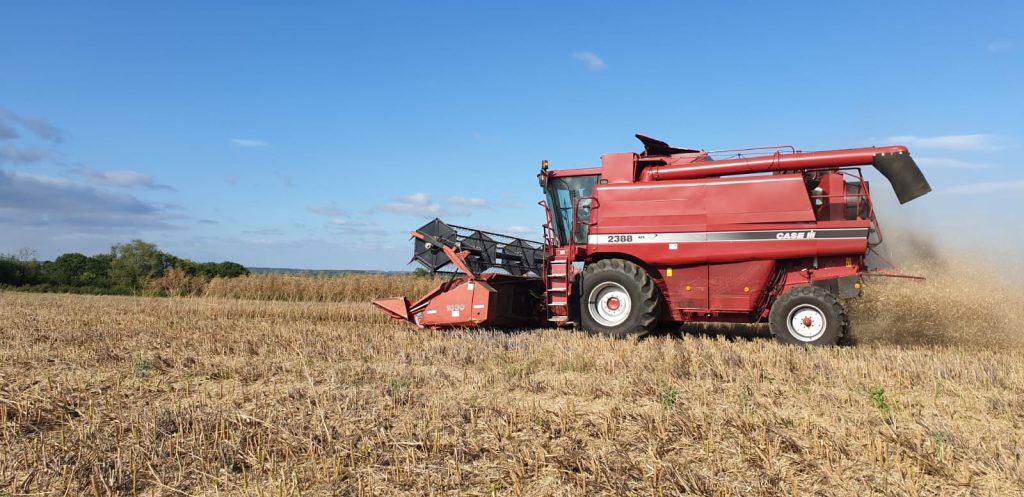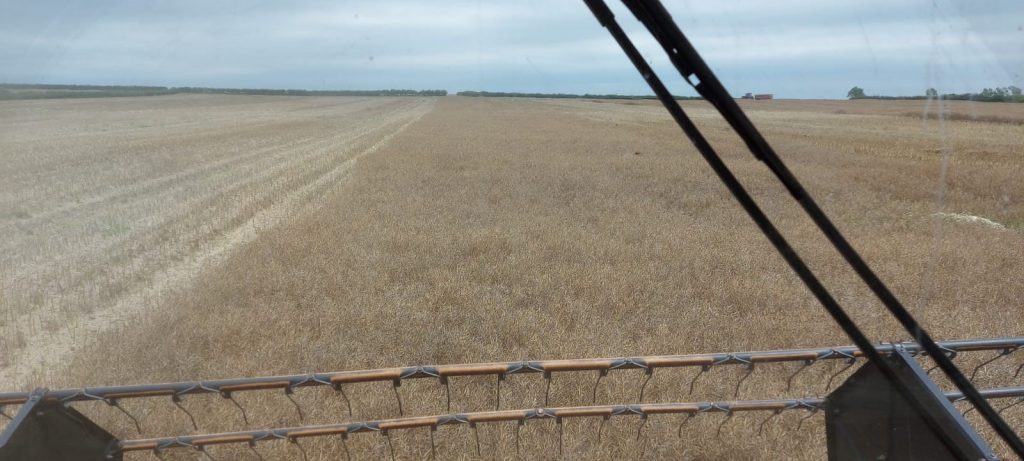At a time when many are turning to conventional varieties to reduce costs as risk mounts, we persisted with hybrids, chiefly for their vigour in Autumn and in Spring. However, it was another trait that came to fore ahead of harvest, following high winds at the beginning of the month.
Typically, our oilseed rape ripens fairly evenly thanks to even germination and stable soil health, and as a general rule we don’t desiccate or apply pod stick ahead of harvest. However, with the exceptionally high winds I admit to being concerned.
As our sprayer is tractor mounted, and with more damage likely to be caused than avoided by applying a pod stick, the pod shatter resistance gene has been more important than ever.
This was highlighted in our side by side plots containing varieties with and without the gene. A week following the wind emerged a green scattering beneath the canopy where there was no genetic resistance, whilst it remained free of volunteers beneath our main farm variety that contains resistance. Far from a precise science, but I would estimate losses at 2-3%. Whilst not a huge loss on this occasion, it comes at a cost and is frustrating so close to harvest.
Harvest itself began on 17th July, after having initially seemed as though it would be much sooner. Our crop, as reported for many across the UK, was around 20% shorter than we are used to. Nonetheless, it was well branched and podded, with stubbles left a fraction shorter than normal to ensure the header captured everything.
Overall, the crop this year averaged 3.46t/ha, a little disappointing given our long-term average is near a tonne a hectare more. Although, when reflecting on its 11 months in the ground, particularly the extremely wet and mild winter, its testament to the establishment that it was able to tolerate this, along with flea beetle pressure to still deliver a profitable margin.
Interestingly, after last year’s harvest where the heap seemed almost alive, along with the procession leading out of the grain store, flea beetle were conspicuous by their absence. Can we see that as good sign for sowing in a months’ time? I shan’t be holding my breath!

Harvest began on 17th July for our OSR crop

Although around 20% shorter, the crop was consistent from corner to corner and branched well

A shot during harvest from our Glyphosate free field, now in its third year without the popular (or unpopular) active!